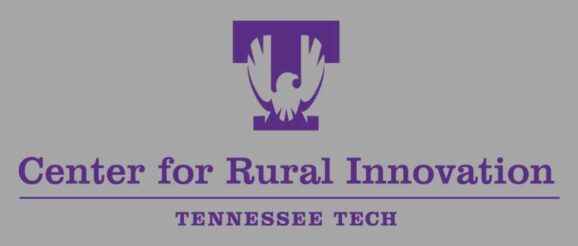Appalachian Regional Commission funding latest achievement for Tennessee Center for Rural Innovation

Appalachian Regional Commission funding latest achievement for Tennessee Center for Rural Innovation The program’s mission is to: (1) create companies and build economic development in rural areas; and (2) position Tennessee Tech University as a strategic economic driver in the region and state. The Tennessee Center for Rural Innovation (TCRI) at Tennessee Tech University (TTU) in Cookeville has come a long way in the years since its founding in 2017. “We had one funding source and served 50 small businesses that first year,” says Michael Aikens , Director of the Center. This past October, the TTU program was awarded a $10 million grant from the Appalachian Regional Commission (ARC) to lead a four-state consortium to help rural electric utilities and energy start-ups deploy smart grid technologies by providing grid modeling support. It was one of four projects totaling $34.5 million that ARC announced as part of the latest round of funding under its Appalachian Regional Initiative for Stronger Economies (ARISE) program which supports large-scale, regional economic transformation through multi-state, collaborative projects. Aikens, who has led the organization since its founding, says TCRI’s mission is to: (1) create companies and build economic development in rural areas; and (2) position Tennessee Tech as a strategic economic driver in the region and state. Initially, the focus was on the Upper Cumberland region, thanks to funding from the U.S. Economic Development Administration under its University Center program. That was broadened in FY23 to the 76 rural counties in the Volunteer State when the Center received its first non-recurring state appropriation. Now, with the ARC grant that also included more than $8.2 million in matching funds, there’s an added focus on Tennessee and three other states. “What makes our approach unique is that we launched it as a project-based internship,” Aikens says. “We ask, ‘What do you need?,’ then find a student who can help you address the challenge. It’s not only dollars for the students, but also real-world experience for them.” The core TCRI program is still focused on finding the appropriate TTU student to address the specific need, but the volume of work has significantly increased. The Center now does about 200 projects a year. That translates into 113,000 hours of service learning through TTU students since TCRI was founded and activities in 67 counties. That said, Aikens notes that the University launched an initiative in 2019 titled “Rural Reimagined” that was designed to harness science, technology, and innovation to transform rural living. It was focused on leveraging the unique assets across the TTU campus, not just those of TCRI, to develop and support the success of rural areas throughout Tennessee. The program is described more fully in this document (TN Tech Rural Reimagined). One of those expanded opportunities involved attracting more visitors to rural communities. “We recognized the importance of tourism to rural counties and started working with the Tennessee Department of Tourist Development,” Aikens said. TCRI works through the local Tourism Advisory Council to host a series of workshops where the community’s assets as a tourist destination are better understood. Using Ph.D. students, the Center collects and analyzes data, then delivers a full branding package to the local entity. Twenty of those projects have been completed, including six in distressed counties. Other services provided by TCRI include an analysis of the impact of the use of public funds for economic development as well as applied research in areas like workforce, poverty, addiction, energy, critical infrastructure, and education. “Everything we do is to create resiliency,” Aikens explains, and that’s certainly true of the ARC ARISE grant, which is the largest in TTU’s history. Partners include MIT, The MIT Lincoln Lab, Pennsylvania State University, West Virginia University Ohio’s BRITE Energy Innovators, Knoxville Entrepreneur Center, and The Biz Foundry in Cookeville. Using a dedicated computer platform called HILLTOP that was created by Tennessee Tech and Massachusetts Institute of Technology (MIT), the project will allow electric utilities to provide cost-effective testing on modern technologies in a real-time simulated environment prior to implementation. “HILLTOP answers how, when, and where to deploy,” Aikens explains. In addition to the grid modelling capability, TTU and its partners will create a power hub for start-ups that are developing alternative energy storage technology, training programs on how to use HILLTOP, and a database being developed at The MIT Lincoln Lab that uses Generative AI. Tennessee Tech expects that, within one year of the project’s completion, it will have served and improved 468 businesses including seven rural electric utilities, one energy tech startup, 60 electrical engineering firms, and 400 freelance software developers. The program is described more fully in this document (HILLTOP Concept Presentation – ARC ARISE).
